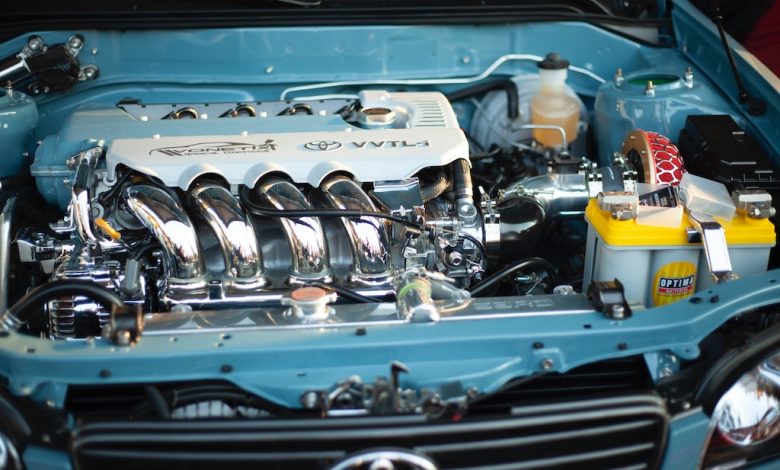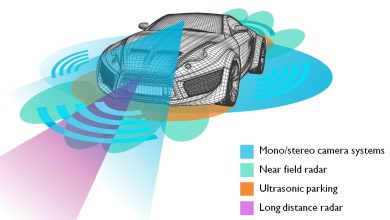Difference between Gasoline & Hydrogen combustion Engines.

Considering carbon-emission & global warming and increasingly stringent emission standards for vehicles around the globe have placed enormous pressure on manufacturers to develop less carbon free vehicles. Hydrogen has long been considered a future fuel in transportation power trains, due to its ability to eliminate carbon-based emissions (e.g., CO, CO2 and soot) and to achieve high mass energy efficiency. Furthermore, hydrogen can be produced from renewable energy sources. The successful commercial application of hydrogen-powered vehicles dates back to the 1930s, with more than 1000 vehicles converted into hydrogen and flexible hydrogen/gasoline operation; however, technical details were reportedly destroyed because of war and can no longer be found.
Recently, effort towards decarbonization and tightening emission standards has facilitated several breakthroughs in the development of renewable hydrogen technologies, including: advanced methods and materials for hydrogen storage (e.g., high pressure storage, up to 700 bar/ 10000psi), production (e.g., solar thermo-chemical processes) and usage (e.g., high pressure direct in-cylinder injection of gas).
However, Hydrogen has minimum ignition energy in air at stoichiometry which indicates that hydrogen can be easily ignited by hot spots or residues in combustion chamber. This may lead to pre-ignition of fuel, which is characterized by combustion during the compression stroke prior to the intended ignition. This results in a loss of combustion phasing control, knocking and possibly mechanical engine failure. Since pre-ignition usually leads to knock. The quenching distance of hydrogen is small compared to conventional hydrocarbon fuels.
Hydrogen has wide range possibilities to be the future fuel of automobiles. Hydrogen can be used in many ways in automobile as Hydrogen fuel cell (HFC), hydrogen combustion engine (HCCI), Dual fuel like hydrogen Diesel Direct Ingection (H2DDI). Hydrogen fuel has great advantage on environmental pollution with zero carbon emission.
Several experimental methods to produce hydrogen (hydrogen from wind energy, solar energy, biomass, geothermal, nuclear energy, dissociating water by electrolysis, fossil fuels, etc. have been investigated, but the majority of hydrogen is generated from costly, nonrenewable sources. The most difficulties arise regarding storage of Hydrogen due to extremely low density. There are six different methods for storing hydrogen:
- Liquid hydrogen in cryogenic tanks (at 21 K)
- Absorbed on interstitial sites in a host metal (at ambient temperature/pressure)
- Chemically bonded in covalent and ionic compounds (at ambient pressure)
- High-pressure gas cylinders (up to 800 bar)
- Adsorbed hydrogen on materials with a large specific surface area (at T < 100 K)
- Oxidation of reactive metals (i.e. Li, Na, Mg, Al, Zn) in water.
Though there are several advantage & disadvantage of both gasoline and hydrogen engines. Here are some basic differences of them mentioned in the table.
| Gesoline Engine | Hydrogen Engine | ||
| Fuel | CxHy (Liquid form) | H2 (Gaseous form) | |
| Combustion reaction | CxHy+O2+N2= CO2+H2O+CO+H2+O2+NOX | H2+O2+N2=H2O+NOX (No CO emission) | |
| Compression Ratio | 8:1 to 13:1 | 17:1 to 22:1 | |
| Air fuel ratio | 14.7:1 (Exception: Mazda SKY-ACTIVE Extra lean 37:1) | 34:1 (Can be used: Extra lean: Up to 180:1) | |
| Ignition Energy | Approx. 0.24 milijoules | Approx. 0.02 milijoules (Easy to ignite but pre ignition, detonation & misfire from hotspot/lean mixture) | |
| Flame Velocity | Slower flame propagation due to liquid to vaporize delay. | Faster flame velocity (10 times faster than gasoline) | |
| Auto Ignition Temperature | Approx. 230-2800C | More than 5000C | |
| Octane Number | 91-99 RON | 120-130 RON | |
| Diffusivity (Spread ability) | Slower | Much Faster | |
| Specific volumetric energy ratio | Much higher (For natural aspirated engine A/F vol. ratio is around 98:2) | Much Lower (For natural aspirated H2 engine A/F vol. ratio is around 70:30) | |
| Storage | Normal Atmosphere (1 atom) | 10000 PSI | |
| Operating Cost | 1.5 gal. for 100 KM | .8 Kg for 100 KM | |
| Price | 2.44 USD per gallon | 13.9 USD per kg | |
| Overall Efficiency | 25-35% | 20-25% | |
| Mass energy density | 46 MJ/Kg | 122 MJ/Kg | |



